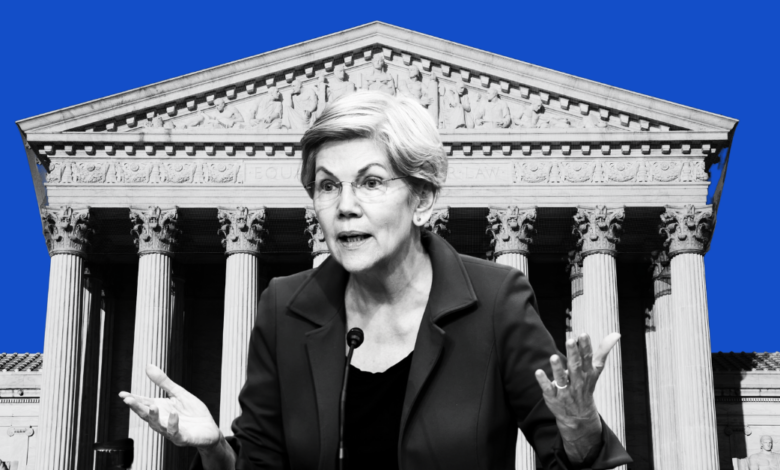Elizabeth Warren Accuses Trump of Market Manipulation Over Tariff Chaos

The recent 90-day tariff pause announced by President Donald Trump offered some relief to the cryptocurrency market. However, the political landscape remains turbulent. U.S. Senator Elizabeth Warren has emerged as a vocal critic of Trump, accusing him of manipulating the markets with his erratic tariff decisions. The controversy surrounding Trump’s trade tariff policies, particularly the sudden increase in tariffs on Chinese goods, has sent shockwaves through the economy and financial markets.
Warren has called for an independent investigation into whether Trump’s tariff announcements were strategically timed to benefit his wealthy Wall Street allies. She has labeled Trump’s actions as corruption, alleging that his insider circle may have profited from the market volatility caused by his tariff changes. Warren specifically pointed to the sudden spike in tariffs on Chinese goods and the temporary pause on tariffs for other countries as potential opportunities for insiders to capitalize on market fluctuations.
The economic repercussions of Trump’s tariff policies have been severe, according to Warren. She claims that the uncertainty created by Trump’s flip-flopping on tariffs has eroded investor confidence, leading to economic instability. With manufacturing data weakening and job openings declining, concerns about a recession and rising inflation are mounting. The unpredictable nature of Trump’s tariff decisions has left traders and investors on edge, further exacerbating market volatility.
In response to the escalating tensions, Warren has called on Congress, particularly Republicans, to intervene and put an end to what she describes as “Trump’s tariff chaos.” She has urged lawmakers to adopt a more stable and consistent approach to economic policy to prevent further harm to the American economy.
The growing backlash against Trump’s tariff policies is not limited to Warren. Rep. Steven Horsford has also criticized Trump’s sudden tariff reversals, suggesting that they may constitute market manipulation. He has raised questions about who stands to benefit from these decisions, hinting at potential profiteering by billionaires. The concerns raised by Warren, Horsford, and other lawmakers highlight the broader unease within Congress about the impact of Trump’s tariffs on the economy.
Former National Security Advisor John Bolton has also weighed in on the issue, criticizing Trump’s tariff plan as counterproductive. Bolton believes that instead of collaborating with allies to address China’s trade practices, Trump has opted for confrontational tactics that have strained relations with major trading partners.
As the political and economic tensions escalate, the focus now shifts to whether Congress will take action and whether Warren’s call for an official investigation into market manipulation will be heeded. The repercussions of Trump’s tariff policies are far-reaching, and the outcome of these developments will have significant implications for the future of the U.S. economy.



